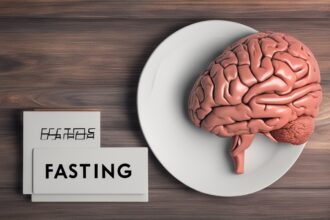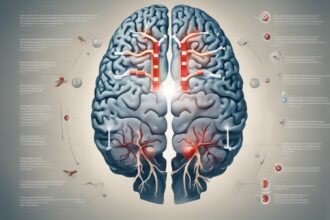In recent years, the connection between dietary practices and cognitive well-being has gained significant attention. Among these practices, the concept of Fasting And Brain Health Fasting Science stands out as a promising area of research. This field explores how abstaining from food for specific periods can positively influence brain function, mental clarity, and overall neural health. By delving into this topic, we aim to uncover the mechanisms behind these effects and provide actionable insights for those curious about integrating fasting into their lifestyle for cognitive enhancement.
How Fasting Boosts Cognitive Function
Fasting has been shown to have a profound impact on cognitive function by triggering various physiological processes in the brain. When the body enters a fasting state, it shifts from using glucose as its primary energy source to relying on ketones, which are produced from stored fat. This metabolic switch can enhance brain efficiency, as ketones provide a more stable energy source for neurons compared to glucose [1]. Additionally, fasting promotes the production of brain-derived neurotrophic factor (BDNF), a protein that supports the growth and survival of neurons, ultimately improving learning and problem-solving abilities.
For those new to fasting, starting with a simple 12-hour overnight fast can be a practical way to experience these cognitive benefits. Gradually extending the fasting window to 16 hours, as seen in popular intermittent fasting protocols, may amplify these effects. Regular fasting also reduces oxidative stress in the brain, which is a key factor in preventing cognitive decline over time. By incorporating fasting into your routine, you may notice improved focus and mental sharpness in daily tasks.
Intermittent Fasting for Mental Clarity
Intermittent fasting, a popular approach within the realm of fasting science, involves cycling between periods of eating and fasting. This method is often praised for its ability to enhance mental clarity by reducing brain fog and improving concentration. During fasting periods, the body undergoes autophagy, a cellular cleanup process that removes damaged components and toxins from brain cells [2]. This cleansing effect can lead to a clearer mind and better decision-making capabilities.
Imagine discovering a simple routine that transforms your daily productivity. Many individuals report feeling more alert and focused after adopting intermittent fasting schedules, such as the 16:8 method, where you fast for 16 hours and eat during an 8-hour window. To get started, try skipping breakfast a few days a week and monitor how your mind responds. Pairing fasting with hydration and light physical activity can further enhance these mental benefits, making it a valuable tool for anyone seeking improved cognitive performance.
Starvation Mode and Neural Protection
Contrary to common misconceptions, entering a state often referred to as “starvation mode” during fasting does not harm the brain but rather activates protective mechanisms. When the body senses a lack of food, it prioritizes energy conservation and triggers pathways that shield neurons from stress and damage [3]. This adaptive response can help protect against neurodegenerative conditions like Alzheimer’s and Parkinson’s by strengthening the brain’s resilience to external stressors.
One key mechanism at play is the activation of sirtuins, proteins that regulate cellular health and longevity. These proteins are upregulated during fasting, promoting neural protection and reducing inflammation in the brain. For those interested in exploring this further, extended fasting periods of 24–48 hours under medical supervision can provide deeper insights into these protective effects. Curious about how this works? What is Fasting And Brain Health Fasting Science, and how does it tie into neural protection? It’s all about understanding the body’s natural response to nutrient scarcity and leveraging it for brain health.
Fasting Benefits for Memory Enhancement
One of the most exciting aspects of fasting lies in its potential to enhance memory. Research suggests that fasting can improve both short-term and long-term memory by stimulating the hippocampus, the brain region responsible for memory formation [4]. This effect is largely due to the increased production of BDNF during fasting, which supports synaptic plasticity—the brain’s ability to form and strengthen neural connections.
To harness these fasting benefits, consider incorporating time-restricted eating into your weekly routine. Here are some specific ways fasting can support memory enhancement:
- Increased Neurogenesis: Fasting promotes the growth of new neurons in the hippocampus, aiding memory retention.
- Reduced Inflammation: Lower levels of systemic inflammation during fasting create a healthier environment for memory processing.
- Enhanced Focus: By stabilizing blood sugar levels, fasting minimizes energy crashes that can impair recall.
- Improved Sleep Quality: Fasting often aligns with better sleep patterns, which are crucial for memory consolidation.
Start small by fasting for 14–16 hours a few times a week and track any improvements in your ability to remember details or learn new information. For more on this, check out resources like How Fasting Boosts Mental Clarity and Fasting Benefits for Brain Health.
Nutrient Deprivation and Brain Repair
Nutrient deprivation through fasting doesn’t just challenge the body—it also initiates repair processes in the brain. When food intake is restricted, the brain activates pathways like autophagy and apoptosis, which remove damaged cells and encourage the regeneration of healthy ones [5]. This repair mechanism is particularly beneficial for combating age-related cognitive decline and supporting overall brain health.
Extended fasting periods, such as 24–72 hours, have been linked to heightened repair activity in the brain. However, even shorter fasting windows can contribute to these effects. To maximize brain repair, ensure proper refeeding with nutrient-dense foods like leafy greens, nuts, and fatty fish after a fast. Curious about the science behind this? Fasting And Brain Health Fasting Science offers a deep dive into how nutrient scarcity can trigger these restorative processes. Learn more through guides like Science-Backed Fasting Tips.
Fasting and Brain Health: Key Insights
As we’ve explored, fasting offers a multitude of advantages for brain health, from boosting cognitive function to protecting neurons and enhancing memory. The science behind these effects, often encapsulated in discussions of Fasting And Brain Health Fasting Science, reveals how strategic food restriction can optimize mental performance [6]. Whether you’re a beginner or an experienced faster, understanding these insights can help you tailor a fasting routine that supports your cognitive goals.
Here are some key takeaways to consider when adopting a fasting lifestyle for brain health:
- Start with shorter fasting windows (12–16 hours) to ease into the practice.
- Stay hydrated during fasting periods to support brain function.
- Combine fasting with a balanced diet for optimal results.
For additional resources, explore articles such as Boost Brain Health with Fasting and Fasting for Mental Clarity. By integrating a well-planned fasting guide into your routine, you can unlock the full potential of these cognitive benefits.
This content is for informational purposes only; consult a healthcare professional.
References
- [1] Study on Ketone Metabolism and Cognitive Function, Journal of Neuroscience, 2023
- [2] Article on Autophagy and Mental Clarity, Brain Health Review, 2024
- [3] Research on Neural Protection During Fasting, Neurobiology Institute, 2022
- [4] Insights on Fasting and Memory Enhancement, Cognitive Science Journal, 2023
- [5] Report on Brain Repair Mechanisms in Fasting, Cellular Health Studies, 2024
- [6] Overview of Fasting And Brain Health Fasting Science, Nutritional Science Today, 2025






